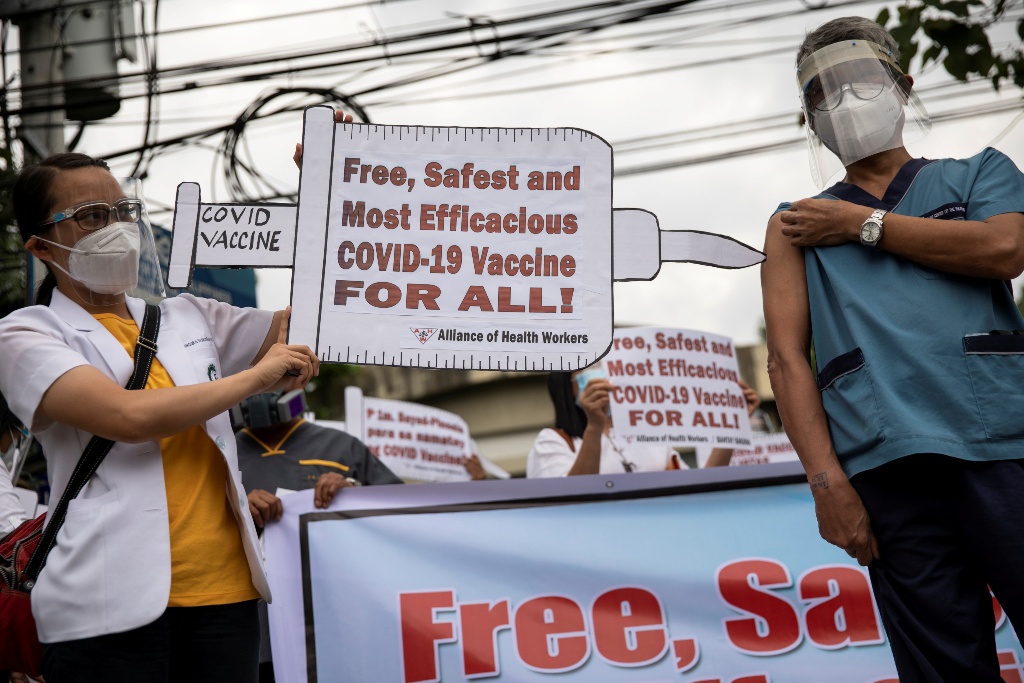News Asia
Vast Majority of People in Philippines Rejecting China’s Sinovac Vaccine

Health officials report the Philippine effort to achieve herd immunity over Covid-19 is facing two emerging problems: Most Filipinos don’t want to get inoculated, and of those who do, reject China’s Sinovac vaccine.
On May 17, a vaccination centre in Parañaque City, Metro Manila, was swamped by members of the public when word got around it was administering jabs od the US made Pfizer.
The Manila Times reports long lines of people disregarding social distancing forming at the centre, with even people who did not have an appointment showing up to get the Pfizer vaccine.
In comparison, vaccination centres offering shots made by the China’s Sinovac have reported few takers. Filipino’s aren’t showing up for vaccination appointments, resulting in a surplus of Sinovac vaccines at the end of each day.
Dr Anthony Leachon, a former senior adviser to the country’s Covid-19 task force, said: “I think it’s the track record of Pfizer for producing quality medicines proven for efficacy and safety. Their product is a result of excellent research and development.”
According to the Manila Times, the Philippines has 5.5 million Sinovac jabs, 2.5 million AstraZeneca doses, and 193,000 Pfizer shots.
Heard immunity for the Philippines
Health officials estimate the Philippines need to vaccinate at least 70 million of its 110 million population to achieve herd immunity. However, the target has since been revised down to 58 million.
The Philippines vaccination programme started on March 1 and as of May 24 only 986,929 Filipinos had been immunised.
Reacting to the rejection of China’s Sinovac vaccine, President Rodrigo Duterte said on May 18 that people could no longer be given a choice of vaccines. “Whether you are a millionaire or a pauper, you get what is given to you. You can’t choose,” he said on television.
Under the current set up, local governments administer vaccines according to a hierarchy that prioritises health workers, people with health issues, the elderly, indigents and uniformed personnel.
Those eligible can sign up and book appointments either using an app or by filling out a paper form. Before Duterte’s intervention, applicants could pick the vaccines they wanted by skipping days when the brand they wanted was not available.
Now people will not be told what brand of vaccine is being used until they are at the centre, at which point they could still refuse but would need to re-book.
Presidential spokesperson Harry Roque said on Tuesday that while health workers would be allowed to choose what vaccine they received, senior citizens and those with health issues would have to go “back to the end of the line – that’s only fair”.
This article was first published in South China Morning Post.






























